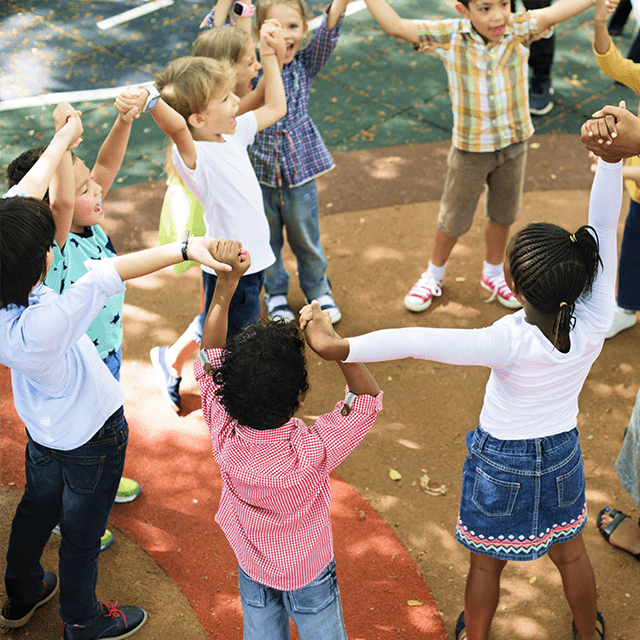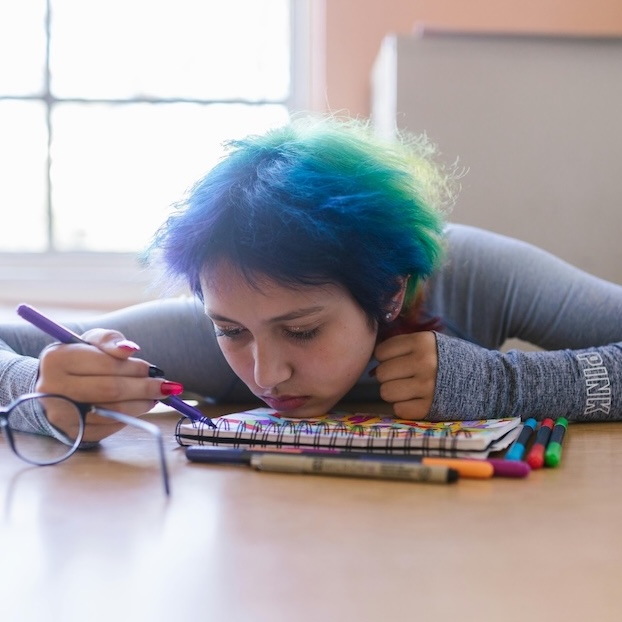Children produce more energy aerobically compared to adults. Children are able to maintain their high energy levels throughout the day without feeling fatigued as quickly as adults. Integrating outdoor breaks, such as recess or outdoor lunch, allows children to exert their energy in a healthy and manageable way. Outdoor time offers many cognitive, emotional, and physical benefits. While prioritizing outdoor time may be a challenge to some, it’s important to emphasize and raise awareness of the importance of outdoor play and recess.
Outdoor time offers many benefits to a child’s physical and mental health. In this post, we will discuss why outdoor play is necessary for a child’s development regardless of their age.
Recess improves social skills
Outdoor time during school hours encourages children to interact with one another and work on socialization, a lifelong trait that will guide them through their life. Learning how to share, work together, and communicate clearly are best learned through continued practice. Kids learn numerous communication skills, like adaptation, problem-solving, and negotiation through outdoor play.
Outdoors encourages creative thinking
Outdoor time boosts imaginative thinking and creativity – children take an average of 15 minutes to decide what to play and who to play with. Through unstructured play, children are free to create their own worlds and have control over what narrative they choose, which is a fun break from their busy schoolwork. When exercising their creativity, they are able to broaden their views and ways of thinking. Activities and free play during recess provide an opportunity to grow creatively, which directly impacts their classroom performance by improving their concentration and retention.
Reduces stress and anxiety
Stress is the reality of everyday life for most students. Luckily, unstructured play is the best means for reducing stress and anxiety during school hours. Nature provides a restorative environment and stimulates all senses, relieving a child from any built up emotions they may undergo. From hearing the birds chirp to seeing the trees or touching the grass, recess provides an open space for play with endless possibilities to get all energy out in a robust way. Because outside time reduces stress and other negative emotions, acknowledging opportunities for outdoor activities is not only beneficial to students, but to the teachers and staff as well.
It boosts self esteem and encourages problem solving
Connecting with peers through imaginative play or mastering physical skills in the playground are opportunities for children to flourish. In an environment where a child is taking risks or experimenting with skills, their confidence is likely to boost as they feel comfortable enough to step out of their comfort zones. During recess, students often have to practice their problem-solving skills to compromise or settle disagreements with peers. It’s vital to allow them to resolve issues between themselves in order to build resilience.
Establishes healthy sleep cycles and mood stabilization
Vitamin D from sunshine helps improve mood stabilization and healthy sleep cycles. The physical benefits the sun provides to children are many, one being that they are able to focus for longer periods of time without disruptions. Outdoor activity also supports both heart and brain function. There is no doubt that physical activity is healthy for a child’s development. Having a scheduled time during their 6+ hours of school gives children a period to exert their energy in a safe space.
Recess contributes to student success
Prioritizing outdoor play is essential to a child’s development regardless of age. Encouraging children to take advantage of outside time will help them learn new physical skills, such as balancing or sliding, while also evolving their social skills and academic achievement. The combination of fresh air and sunshine are known to increase overall health and spirit. Whether it’s imaginative play or social play with fellow classmates, recess is crucial to their physical and mental health. The CDC recommends a minimum of 60 minutes a day of physical activity for children. Though physical education classes or recess may meet part of that need, it’s important to raise awareness of the value outdoor time offers.




.jpeg)
